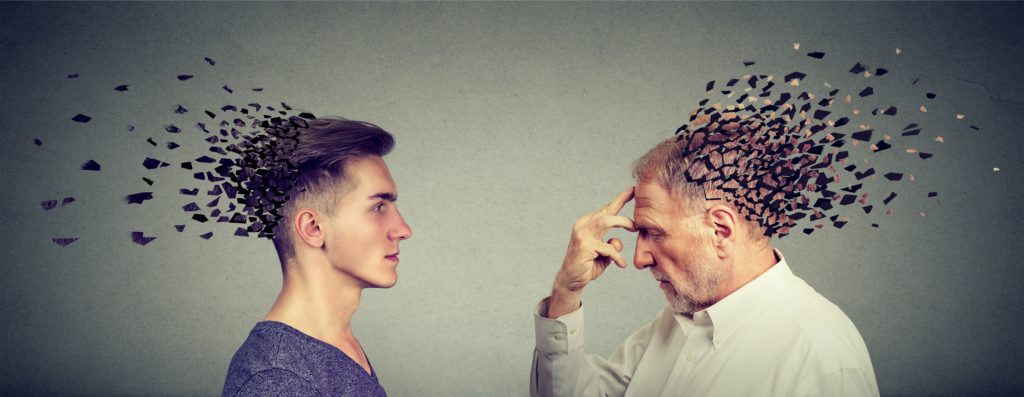Quick Hits
Daily brief research updates from the cognitive sciences

Who wouldn’t want to keep their memory when aging?!
Well, researchers have just announced some promising results in mice enabling them to keep their memories and avoid some of nasty neuro-degenerative aspects of Alzheimer’s.
What did they discover?
If you read the research and the press release, it gets technical and complicated very quickly, so let me translate this for you:
During aging we have more oxidative stress and accumulated stress over our lifetimes, this leads to various proteins, notably one called beta amyloid, building up in the brain. These clumps are resistant to removal and so end up continuing to build up over time contributing to multiple factors and particular impairing memory but in general decreased cognitive function.
The researchers around Adam Smith at the University of Kansas processed a protein from corn in the lab to produce an antigen which helps the immune system to clear out these clumped proteins in the brain. This is effectively a vaccination — mice injected with this showed greater short-term memory on lab tests (such as the clichéd maze tasks) but also on long-term memory. The markers for inflammation in the brain were also lower in blood samples.
The obvious question is would this translate to human beings? Because of the nature of the mechanism which is similar in human beings the researchers think it would but, obviously, this will need more research. But nevertheless very, very promising.
I’m waiting…

Andy Habermacher
Andy is author of leading brains Review, Neuroleadership, and multiple other books. He has been intensively involved in writing and research into neuroleadership and is considered one of Europe’s leading experts. He is also a well-known public speaker speaking on the brain and human behaviour.
Andy is also a masters athlete (middle distance running) and competes regularly at international competitions (and holds a few national records in his age category).
Reference
Adam S. Smith, Kyle R. Gossman, Benjamin Dykstra, Fei Philip Gao, Jackob Moskovitz.
Protective Effects against the Development of Alzheimer’s Disease in an Animal Model through Active Immunization with Methionine-Sulfoxide Rich Protein Antigen.
Antioxidants, 2022; 11 (4): 775
DOI: 10.3390/antiox11040775
More Quick Hits
Your brain on near-death experiences
Near-death experiences have fascinated many people ever since they have been reported. And these experiences guide our view of how we die: the memories of your life passing in front of your eyes, the tunnel of light, the floating movement towards a bright light....
Social networks grow your brain
The headline is a bit “click baity” but it is what a group of researchers found. To be more specific they found in macaques (cute monkeys) in the wild that having more grooming partners grew different regions of the brain. Grooming is the primate version of having a...
What do creative brains look like?
We’d probably all be happy to be a bit more creative — though research into our own opinions show that many people do actually consider themselves to be above average in creativity. An obvious self-bias. This is where scientists who study creativity come in and find...
New gender biases discovered
There have been many studies on gender biases, and I have followed, written, and spoken about many of these biases over the years (over a decade actually) but two studies have just come out that caught my eye. One out of New York University focused on gender natural...
Growth of your brain over your life
So, we all know that our brain grows very quickly as babies and children and then after a certain age, younger than some of us may like to think, there begins a slow decline. But precisely what and how is the question. Well, this is a question that an international...
How to reduce loneliness
I have reported multiple times on loneliness during the pandemic – mostly because interest and research into loneliness has taken a large uptick. I have also reported on how to combat this and was happy to see that a piece of research just out proved what I had...






